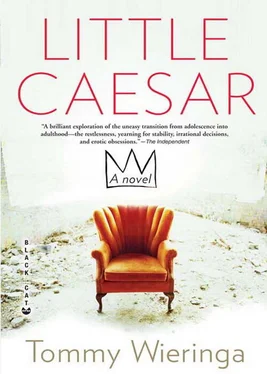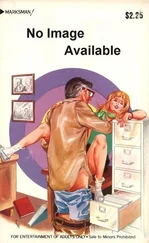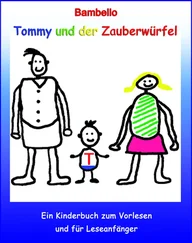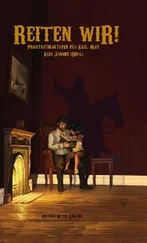In the arrivals hall the flash of recognition — even far away and amid the crowd, I see from the way she moves, her silhouette among the others, that it’s her. Imprint. Lorenz. And desperate love as well. That tremor, risen from the depths where the child lies sleeping, opens its eyes now and sees its mother.
My smile is untainted, nothing grinds between my teeth.
She has a cobalt-blue mantilla draped over her shoulders. She is crying a little. She throws her arms around me, I feel her belly against my body, her breasts. The repulsion, sharp as a toothache. I will never have a normal relationship with that body. Not even now that we have arrived at the end, now that her days are numbered.
‘I’ve got a cab for us,’ she says. ‘Come on.’
We had telephoned occasionally. At long last she had bought a cell phone, something she had always avoided out of an unspecified fear of radiation .
‘Tunisia,’ she said when I asked where in the world she was.
‘Jesus.’
‘This is an island, I think. I’ve barely been out of the hotel.’
‘And what is the island called?’ I ask, as though trying to help her after she has lost her way.
‘Djerba.’
I was holding a shell to my ear, listening to the hissing of the ocean.
‘Hello, are you there?’
‘Yes, I’m still here. What are you doing out there?’
‘Where?’
‘On Djerba.’
‘Oh. Taking it easy. Reading a lot.’
‘I mean, why are you there?’
‘Oh, well, they didn’t want me anymore. That’s what it really boils down to.’
‘Who?’
‘There was a spot on my breast. You couldn’t see it at all, with a little makeup, but by then they weren’t interested anymore. They said the actors wouldn’t be able to handle it. Just a little spot.’
My head spun. The moment you knew would come, for which in your blackest hours you had longed. Which you had feared more than anything else. My voice was flat, toneless, when I asked, ‘What kind of spot?’
‘A kind of cancer. An early stage. On the nipple, the right one.’
From the sacred spaces of the past came the requiems I had sung for her. The moment had come. I cursed quietly.
‘Yeah, you can say that again.’
‘What now?’ I asked.
‘Don’t worry your head about it, love. It’s only a little spot. Sometimes it even heals over for a while.’
‘It’s a open wound?’
‘That’s how it started. An infection. A sort of flaky little wound that bled a little sometimes. Sometimes a little pus came out of it. That healed over again but now it’s been open again for a while. I don’t understand it. I eat so many good things, lots of vitamin C, wheat germ. I have this really good salve that I rub on it. I’ve got it pretty well under control.’
‘Vitamin C? Against cancer?’
‘It’s so good, a lot more people. .’
‘And the doctor? Where are you going for treatment?’
‘I’ve heard about this wonderful orthomolecular physician, I want to make an appointment with him. And in Cologne there’s a doctor who has developed a special method. .’
And so it dawned on me that she was not planning to go to a hospital for treatment at all, that she didn’t even want to think about an operation. She was placing her fate in the hands of people who called themselves healers. The greatest act one could perform on this earth was to heal another. To be Jesus.
She was on the far shore of the same sea I was looking at. I left Lagonissi as quickly as I could.
In the backseat of the taxi, with the desert awakening all around, it was as though we were racing back through time, back to Alexandria.
The subject lay silently between us, black water.
‘Where did you come from now?’ she asked.
I pointed at the windshield, down the long asphalt road, towards the still-invisible sea beyond.
‘The other side. Athens.’
‘When you got off the plane I saw that you have the same stately posture as my father. You inherited that from him. So straight and tall. Not that hulking frame that your father had.’
I saw oleanders and crooked olive trees with bluish-green leaves and occasionally, along the road, women in long, heavy skirts and broad-rimmed straw hats.
‘This is where it is,’ my mother said. ‘It’s not far now.’
Midoun was the name of the village. Then the houses of Midoun segued into more olive orchards, with here and there a house the color of dust, sometimes a few of them huddled together.
Parallel to the coastline the hotels loomed up, one after the other, countless charter flights poured into them constantly. Bougainvillea bloomed beside the entrance. A man in an emerald-green waistcoat took my suitcase. On the reception desk was a sign. Honored guest, the algae on the beach is a natural phenomenon, we are unable to remove it completely. The algae is a part of the ecosystem. The sea will remove it by itself. The management thanks you for being understanding .
We went down to the breakfast room. A low mist hung in the room, coming from the fried eggs, bacon, the steam from chafing dishes. We found a little table by the window. The food was spread out over a few islands, between them people swarmed with plates in hand. The conveyor toaster was of particular interest to me. You put a slice of bread on a conveyor belt and it was roasted top and bottom by glowing spirals — when it reached the end of the belt the bread fell onto a little slide and was ejected from the machine, toasted and all. An industrial, efficient process, in keeping with the mass tourism along this stretch of coast.
‘Mostly Germans here,’ my mother said. ‘It’s very inexpensive. I could spend the rest of my life here if I wanted to.’
Emotion sticking like a fishbone in my craw. The rest of her life, it might be long or short, what is clear in any event is that Death has reminded her of their rendezvous. Was she always so clumsy with knife and fork? I look at her like a collector. I collect memories.
At four in the afternoon I awoke from a deep sleep and started the day for the second time. From the window I could see on the beach the plague of algae I had read about downstairs. Dark brown, a thick layer meters wide, tossed up by the sea. Beyond that, along the remaining strip of sand, were wicker parasols.
The corridors were long and dark, from behind the doors came the sounds of human lives. The wind whistled down the hallways. I almost fell into the elevator, which had stopped a good thirty centimeters lower than I had expected.
I found her on one of the recliners along the narrow stretch of sand.
‘Feeling rested, sweetheart?’ she asked.
She wasn’t wearing a top. I wondered whether that was acceptable in this part of the world, with its Arab prudishness, but noticed that other women were doing the same. There was a bright red spot on her right nipple. It looked scaly, infected.
‘And now,’ I said after a time, ‘what about that?’
I nodded at her breast. She looked at it.
‘This,’ she said, ‘is not cancer, this is a challenge.’
I shook my head slowly, in disbelief.
‘Is that what the doctor said, Mrs. Unger, you have a challenge ? It looks scary. Aggressive.’
‘It’s not that bad, is it? Like an insect bite or something.’
‘The crab, Mother, that’s what bit you.’
She shrugged.
‘Those are only metaphors.’
‘What are you planning to do about it? Do you even have a plan?’
‘I have an appointment in Cologne in December. It’s quite a drastic procedure, you know, it makes you very ill, but I’ve heard such good things about it.’
‘Such as?’
‘He sort of heats the cancer, those cells can’t take it and they die.’
Читать дальше












